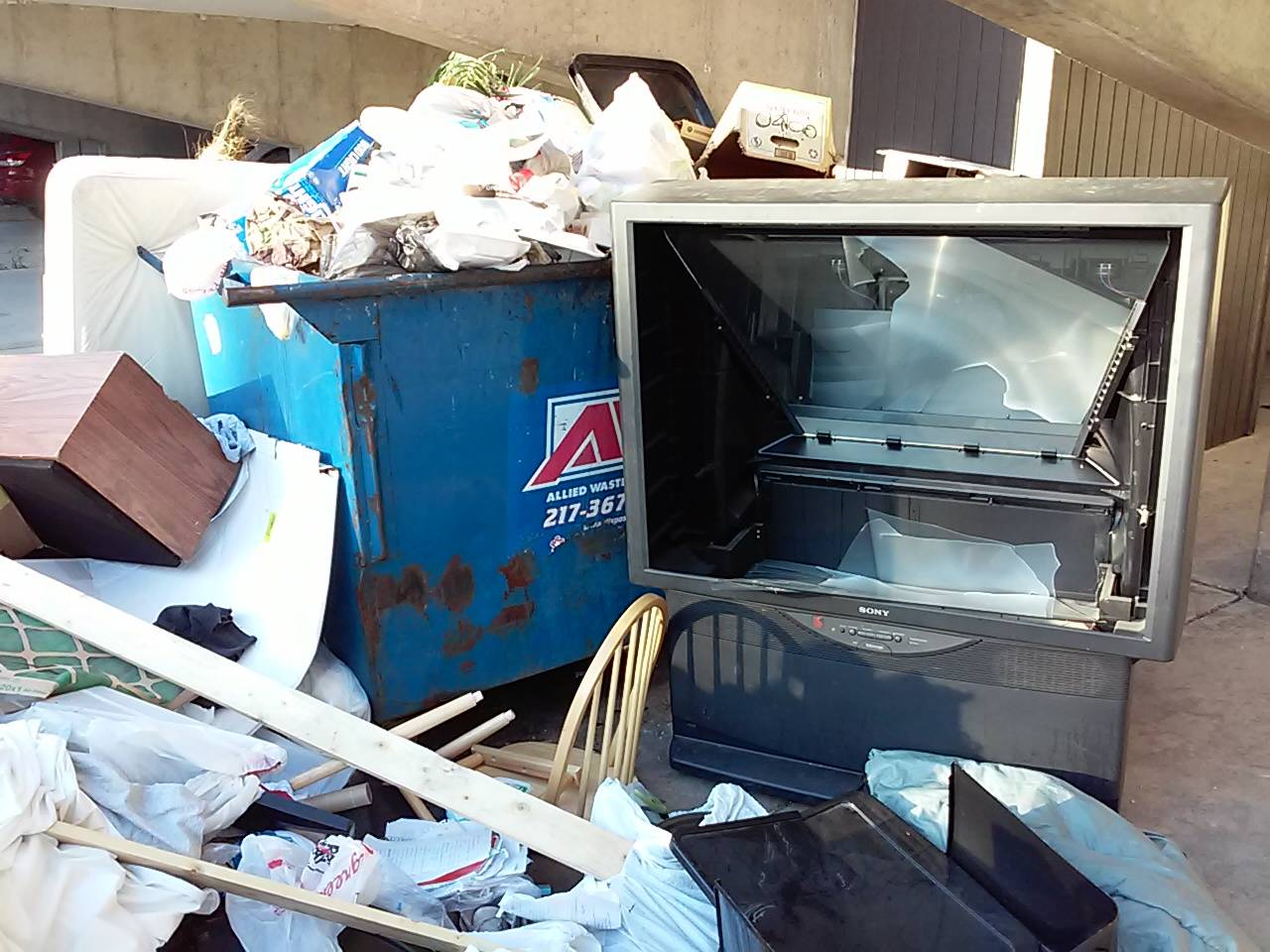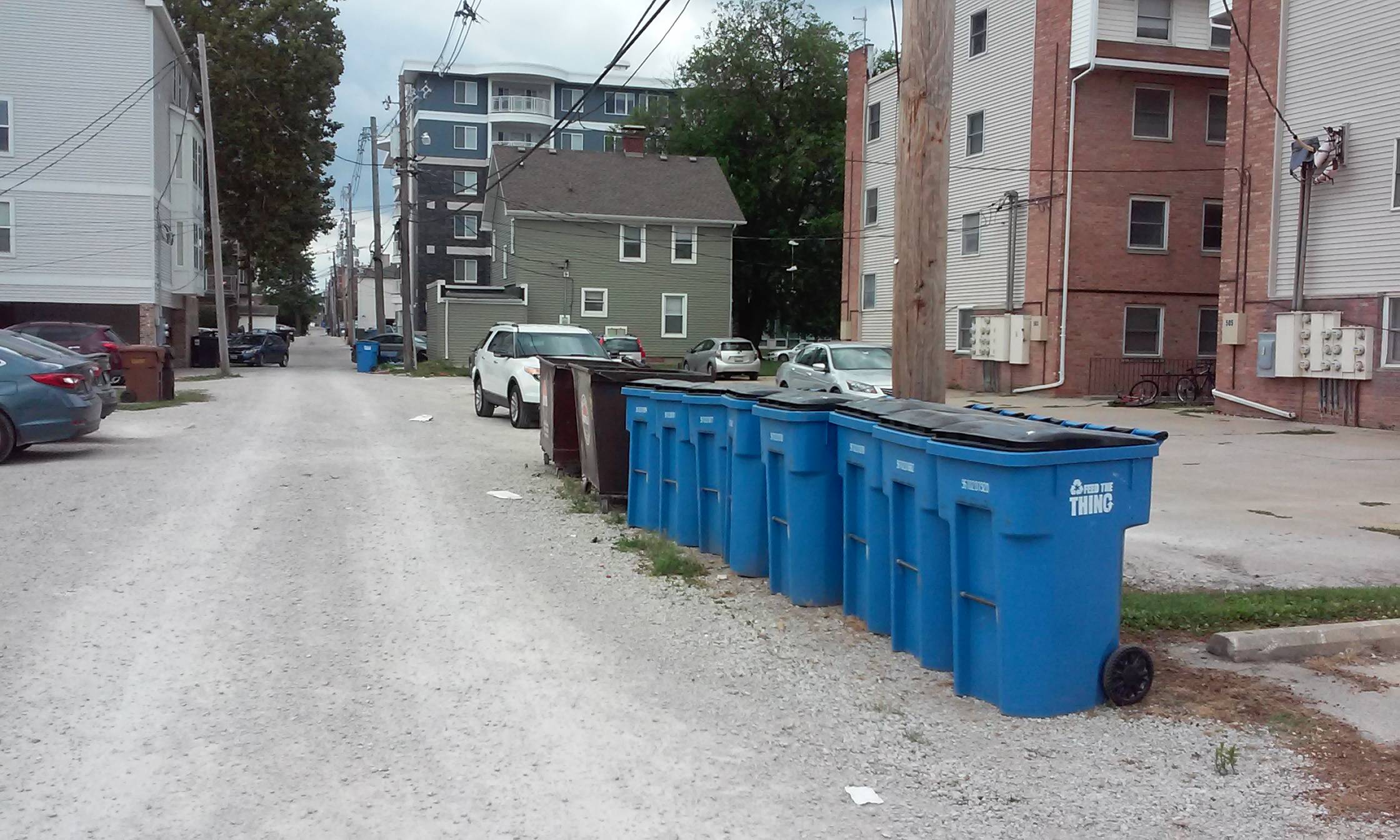As I unlocked my bike outside the North Prospect Aldi, I watched a woman proffer a quarter to another woman, calling to her “I’ll take your cart!”
The other woman either didn’t hear, or was unfamiliar with the drill. She kept moving toward the cart return area.
I smiled and nodded knowingly, sharing a bit of human understanding with my fellow human. “Oh, some people just don’t get it” we thought, simultaneously.
Then, to my horror, her other hand came upward, and she casually dropped a half-full PET plastic bottled water into Aldi’s trash can.
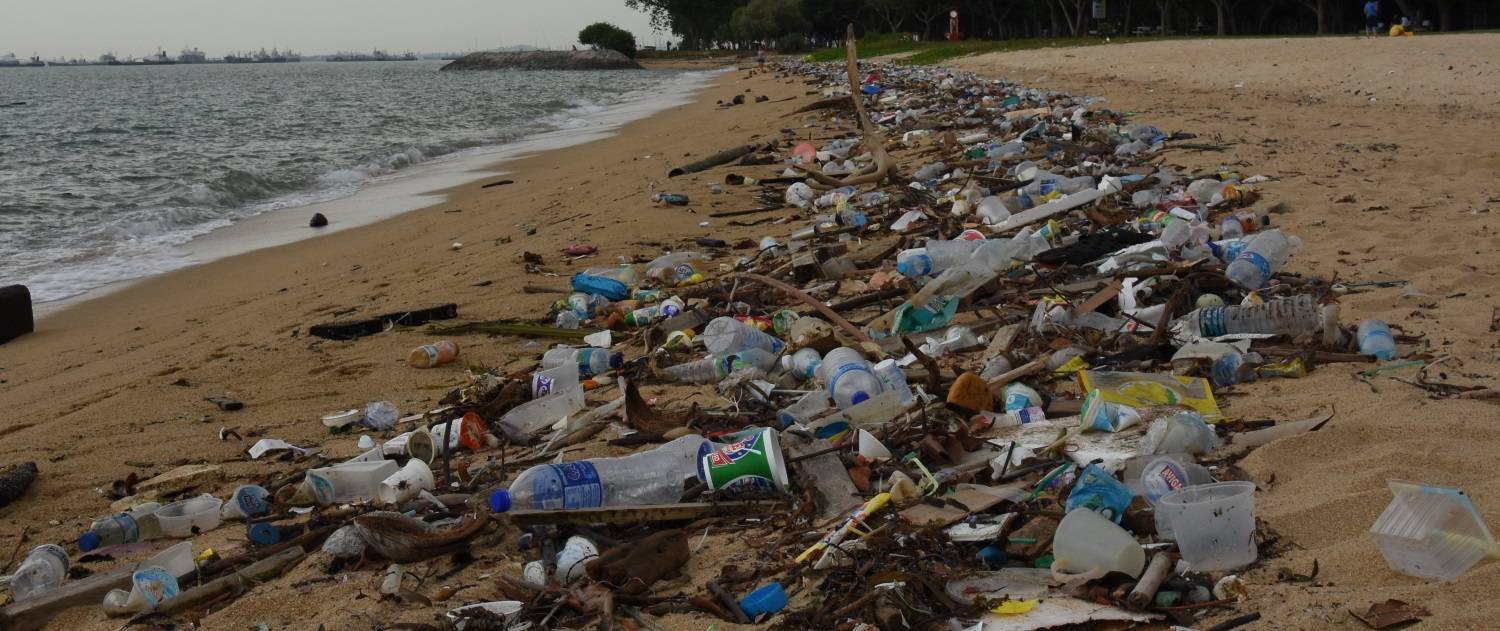 A beach in Singapore, photo by Vaidehi Shah via Wikimedia Commons
A beach in Singapore, photo by Vaidehi Shah via Wikimedia Commons
How did I respond? I cycled away, wondering how I should respond.
If we learned anything during the last year, it’s that shame no longer motivates people. Scolding her would do nothing useful. Had I immediately said “hey, wait! Do you not have recycling at home? Let me recycle that for you!” I might have got her to think about her action without seeming confrontational (effectively shaming her, but with a positive, constructive, feel-good vibe).
But that’s pissing into the ocean of our disposables problem. The landfill and our oceans have already had enough. We became a disposable society within the lifetimes of our parents and grandparents, and we have no idea how long we can continue to throw away everything we use on a daily basis.
Do you buy take-out food in Styrofoam clamshells? Seven days a week? You’re not alone.
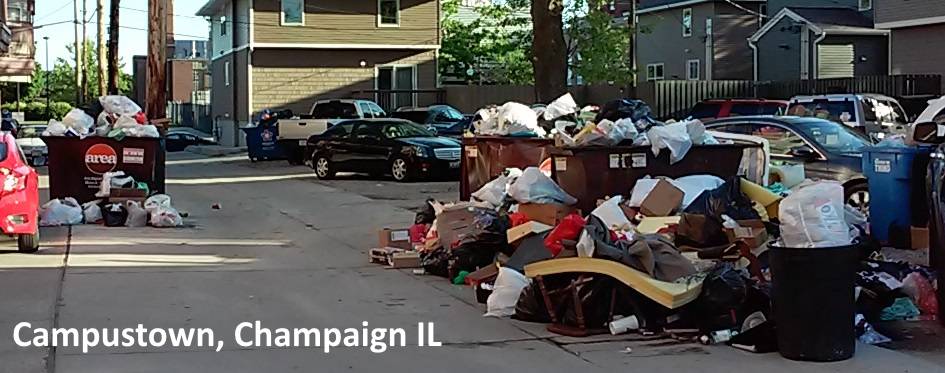
In England, waste haulers are still referred to as “dustmen.” Can you imagine a time when the only thing we threw away was dust?
On my bike ride back to Urbana, I cycled through Campustown. On south Sixth Street, I saw a pair of students walking toward a dumpster with what appeared to be a stack of boxes. I watched them toss the boxes into the dumpster, walking right past the bright blue row of recycling bins.
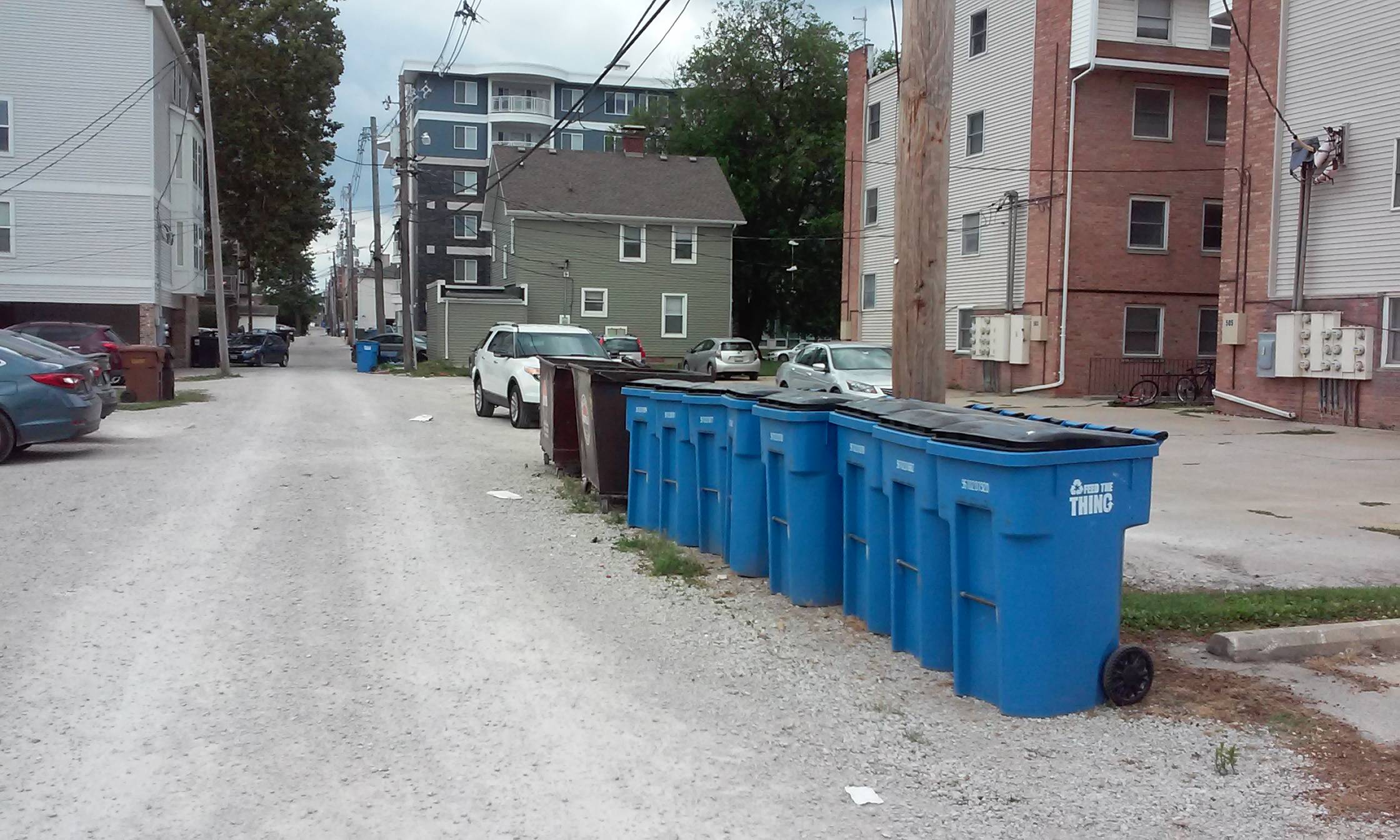
This time I was prepared to act. “Hey, can I ask you guys a question?” I said as I cycled up.
They were Chinese, and one seemed more conversant with English than the other. But I had a hunch they would be polite and attentive as crazy/sweaty man dug through their recently abandoned recyclables.
“I’m curious as to why you didn’t put these boxes in the recycling bin?” I intoned, as I retrieved the cardboard and moved it to the blue bin.
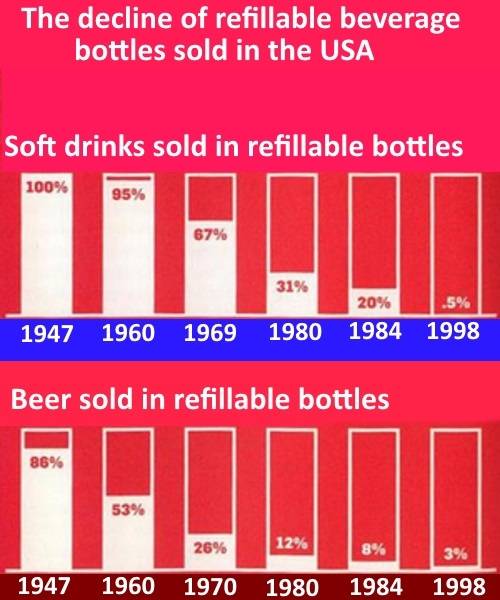
The less conversant of the pair studied the writing on the dumpster, and then the writing on the bin. I understood the problem. Nobody had explained to him that we segregate our refuse into two categories.
That right there is a big problem, but something U of I International Student Orientation can certainly tackle, right?
More piss in the ocean.
Here, by the way, is a picture of the ocean.
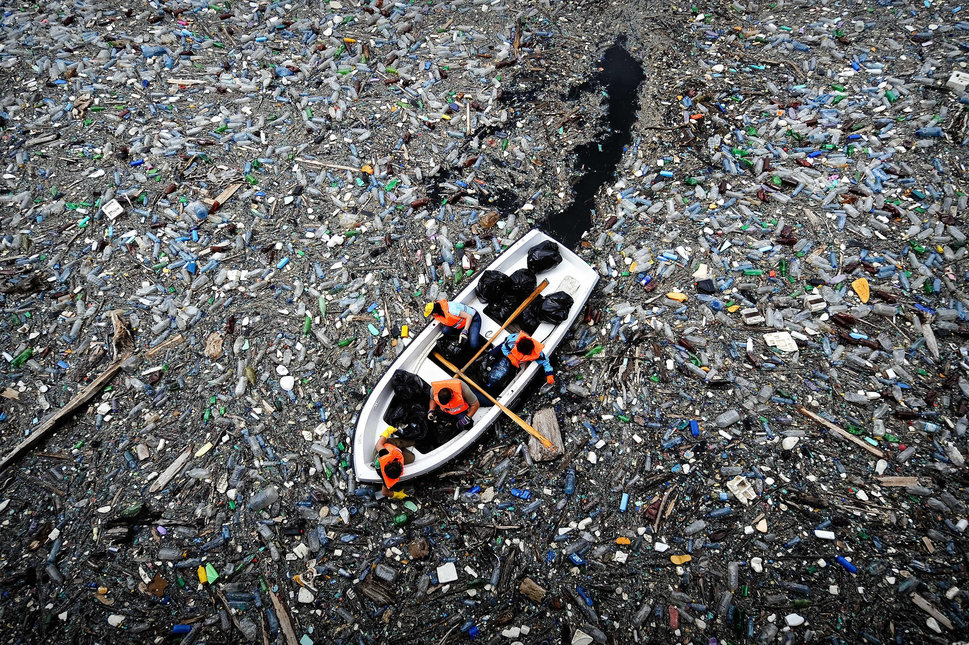
Changing human behavior is easy, but changing individual interests is impossible. You can’t make a person care about the environment. So why not take the right-wing approach, and incentivize people?
Right now, homeless and underemployed people are scouring the alleys of Champaign-Urbana, retrieving aluminum cans from dumpsters (and pilfering them from recycling bins, depriving haulers and municipalities of income, but that’s an issue for a different column).
Now that the downtown recycling facility is closed, these people must transport their haul to the Mervis facility on Route 45, in far northeast Urbana. It’s not fun transporting a cache of crumpled cans across town, but they don’t do it for fun. They do it for money.
10 states mandate bottle deposits, including Iowa. Container deposit legislation is rife with political machinations, but what isn’t? In California, my sister Rebecca delights in returning her CRV collection to the local redemption facility. She collects discarded bottles while walking her annoying dog Floyd. It’s a profit deal!
In New York City, people line up at money vending machines, feeding them recyclables and extracting cash in return. Here’s the rear entrance of the Key Food on Queens Blvd., near Main Street in Briarwood.
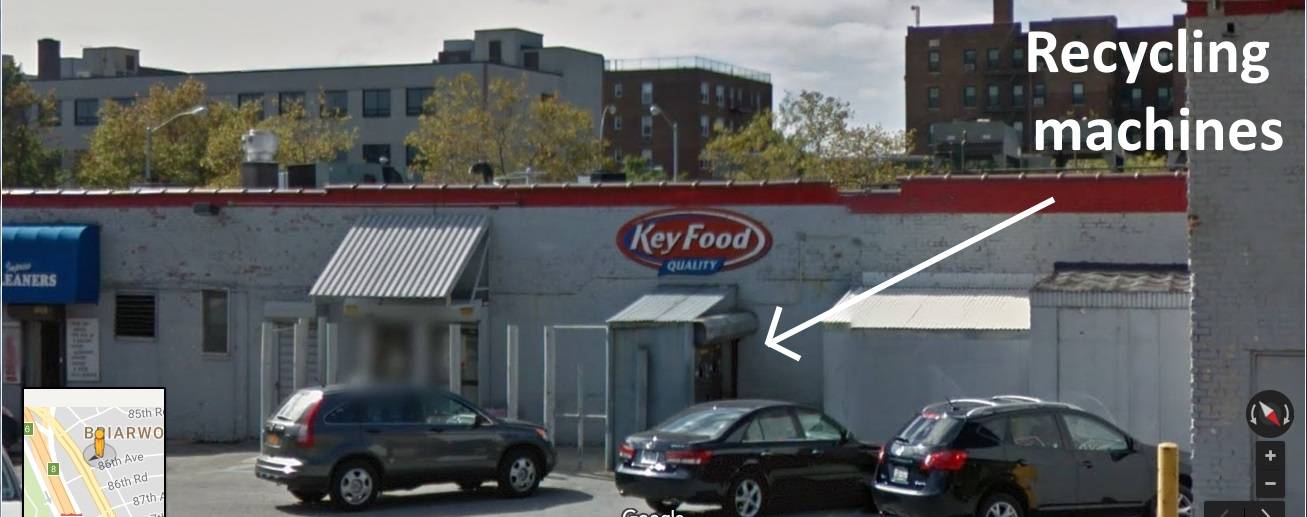
Here’s the Street View of Food World at 149th & Jamaica Avenue. All those blue things vend money. Do they really need eight of them? Yes.
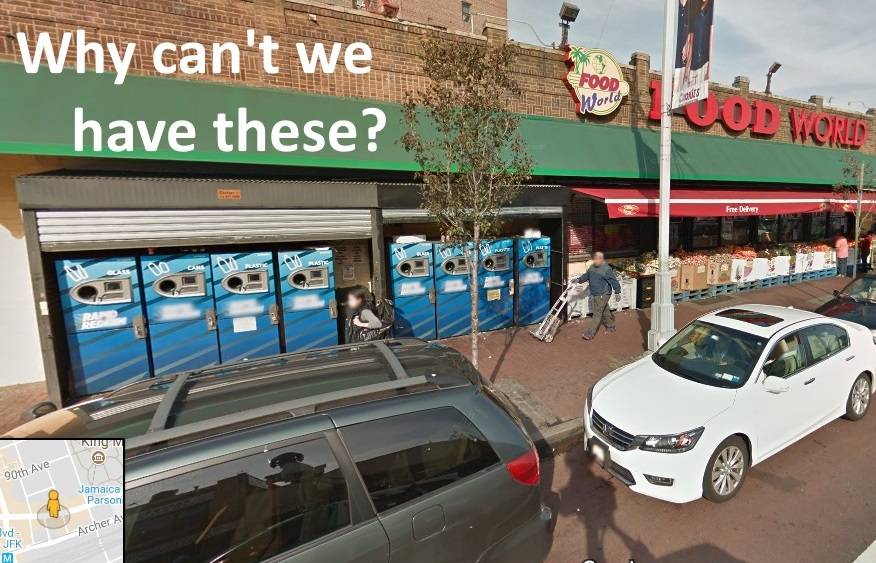
Last time I walked past, every single one of them was in use. Despite the fact that Jamaica Avenue is one of the trashiest neighborhoods in America, there aren’t a lot of discarded bottles in the gutters.
Of course, if you’re old enough, you’ll remember when people took bottles to the grocery store not to be recycled, but to be re-used!
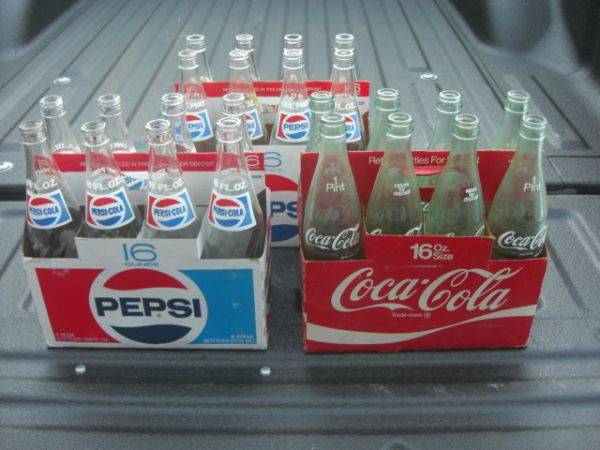
Adding a nickel deposit to a case of bottled water will cost $1.20 to people too lazy to redeem their deposit. So why not make it a dime, like Michigan? Here’s how their system works.
Of course, there’s always some fraud when unscrupulous foreigners transport bottles from neighboring states. But recyclers are pretty good at spotting it.
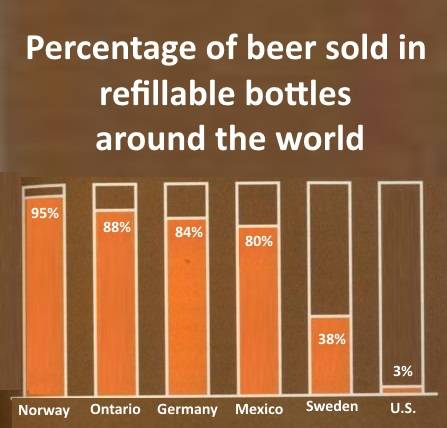
The News-Gazette reported in 2005 that local taverns weren’t happy when Illinois distributors “yanked” returnable bottles from the market. The Esquire’s Joe Donahue was quoted as saying “we’re not fans of throwing them in a landfill.”
 If you’re like me, you’ll remember the days when stacks of bottles began appearing outside the Esquire, waiting for the garbage man. It’s not pretty.
If you’re like me, you’ll remember the days when stacks of bottles began appearing outside the Esquire, waiting for the garbage man. It’s not pretty.
Where does it all go? Right into your aquifer.
Huffington Post has an ongoing series on ocean plastics. Wouldn’t it be great if it weren’t ongoing?
As the movie Dogtown Redemption demonstrated, there’s an army of workers poised to clean up our town, and save us from ourselves. We just need to make it worth their while, five cents at a time.
